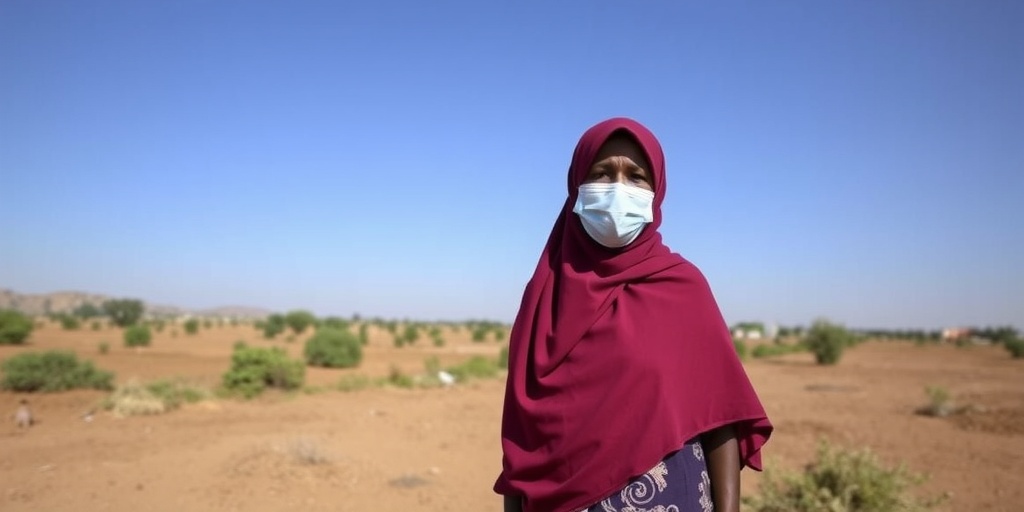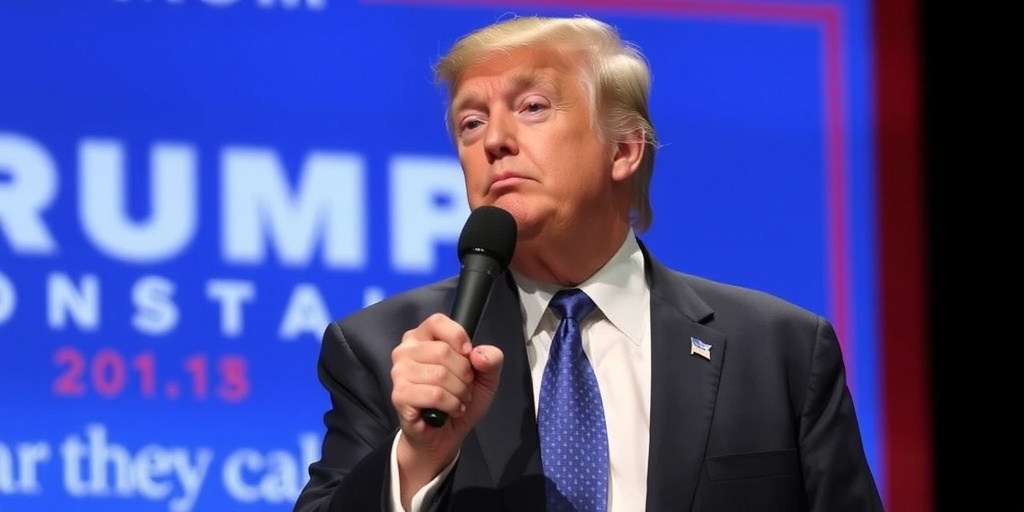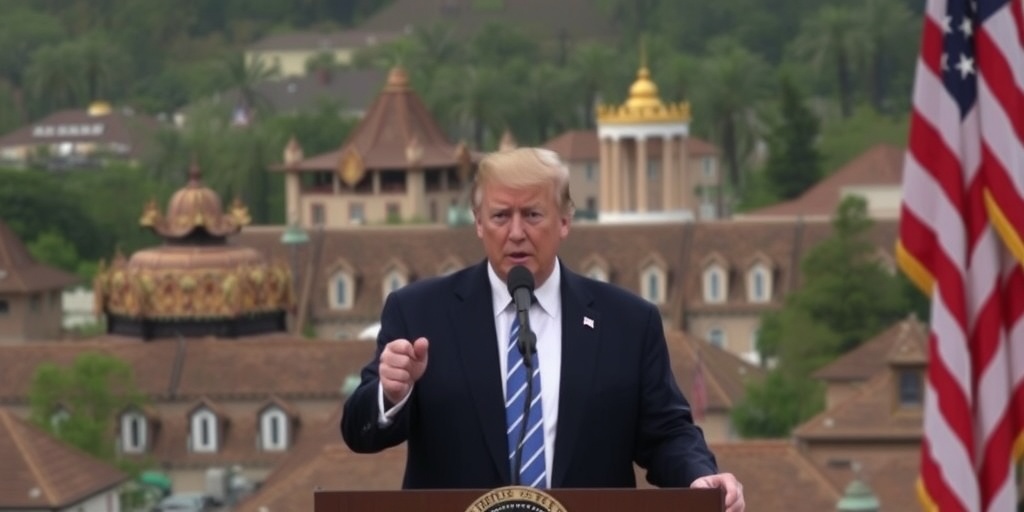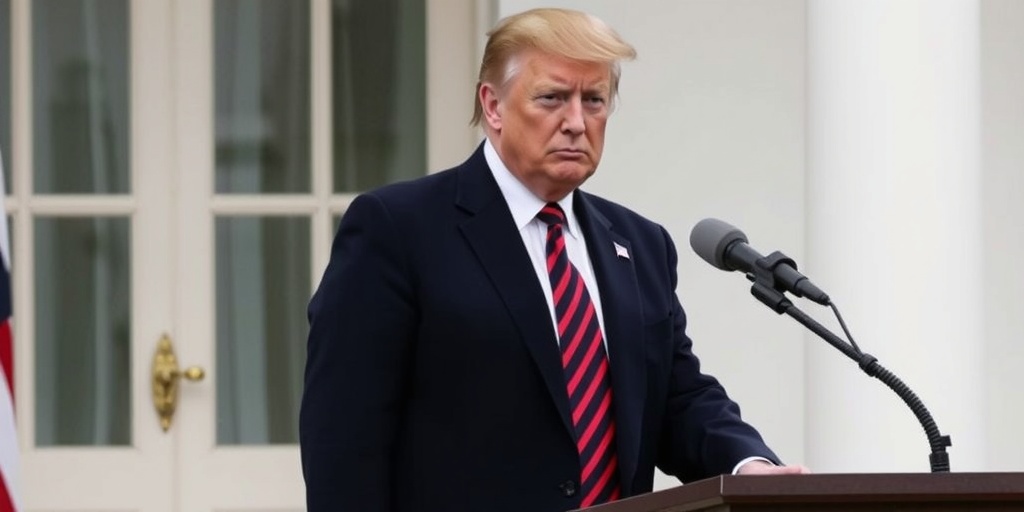Now Reading: Foreign Aid Cuts Fuel Risk of Disease Outbreaks
-
01
Foreign Aid Cuts Fuel Risk of Disease Outbreaks
Foreign Aid Cuts Fuel Risk of Disease Outbreaks

U.S. Foreign Aid Freeze Compromises Global Health Security in the Fight Against Infectious Diseases
Recent revelations indicate that dangerous pathogens are being left unsecured in laboratories across Africa, highlighting a growing public health crisis. Inspections for diseases such as mpox, Ebola, and other infections at airports and border checkpoints have been halted, while millions of unscreened animals are transported across borders. The pause on foreign aid, initiated during the Trump administration, has weakened essential programs designed to prevent and eradicate disease outbreaks across the globe, rendering not only these countries more vulnerable, but also endangering the American population.
Infectious diseases do not respect borders; outbreaks that originate overseas can swiftly spread. As seen with the coronavirus pandemic, the virus that was first detected in China quickly made its way to the U.S. When diseases like polio or dengue resurface in the States, they are frequently traced back to international travel. Dr. Githinji Gitahi, head of Amref Health Africa, a significant nonprofit dependent on U.S. funding, emphasized that controlling diseases abroad is intrinsically beneficial for the American populace, stating, “It’s actually in the interest of American people to keep diseases down.”
The urgency of the situation has escalated, particularly in light of the deadly mpox outbreak currently unfolding in the Democratic Republic of Congo, with cases multiplying across a dozen other African nations. The U.S. is also facing a burgeoning bird flu crisis, while multiple hemorrhagic fever viruses are on the rise, such as Ebola in Uganda and Marburg in Tanzania. Despite these threats, U.S. Agency for International Development (USAID) efforts have been critically hampered by the foreign aid freeze, which has frozen funding for vital laboratories and emergency preparedness in over 30 countries.
USAID had previously invested approximately $900 million in 2023 to bolster global health initiatives, but bureaucratic impediments have thwarted the continuation of these programs. Waivers were issued by the State Department to enable some essential work, but internal obstacles created by Trump administration appointees have slowed the disbursement of funds. Last month, the administration took the drastic step of canceling over 5,800 contracts, effectively halting numerous USAID initiatives, including several key programs that had received permission to proceed under these waivers.
Experts estimate that the foreign aid freeze could lead to over 28,000 new cases of infectious diseases such as Ebola and Marburg, and 200,000 cases of paralytic polio each year. Critics argue that this not only endangers the global population but puts Americans at heightened risk as well. Many USAID staff members who focused on outbreak response have been terminated or placed on administrative leave, reducing the team from over 50 to just six individuals.
The decision to cut crucial funding has also resulted in the dismissal of hundreds of thousands of community health workers across Africa, who play a vital role in disease surveillance and response. A community health worker even reported the outbreak of Marburg disease in Tanzania, demonstrating how U.S. support has historically empowered local health systems.
In contrast, countries like Nigeria have expressed a mix of alarm and resignation regarding the loss of aid. Dr. Muhammad Ali Pate, Nigeria’s health minister, acknowledged that while the U.S. government is not solely responsible for ensuring the health and security of Nigerians, the ramifications of the withdrawal of foreign aid could be severe.
The complex nature of effective outbreak response involves coordinating numerous elements, such as investigators to confirm initial reports, trained testing workers, and access to laboratory resources. America’s support has historically facilitated these connections, helping countries identify their needs while building essential trust among health officials. However, with the U.S. pulling back its involvement, these critical infrastructures are now at risk.
Further complicating the landscape is the rise of other global players like China and Russia, who are expanding their presence in Africa through investments and support in biosafety and laboratory capabilities. This shift could alter the balance of power in international health, particularly in tracking and responding to disease outbreaks.
As financial support diminishes, the ramifications for global health security become increasingly severe. Infectious diseases can wreak havoc if inadequately monitored, and many regions within Africa lack the capacity to sustain health systems without international assistance. A public health crisis looms, demanding urgent attention, coordinated efforts, and a reassessment of the prioritization of global health funding.
In closing, the decision to suspend foreign aid is not merely a budgetary issue, but a grave public health concern that could have repercussions felt around the world and in the U.S. The interconnectedness of global health necessitates a renewed commitment to international cooperation and funding to mitigate future outbreaks and secure public health.
Stay Informed With the Latest & Most Important News
Previous Post
Next Post
-
 01New technology breakthrough has everyone talking right now
01New technology breakthrough has everyone talking right now -
 02Unbelievable life hack everyone needs to try today
02Unbelievable life hack everyone needs to try today -
 03Fascinating discovery found buried deep beneath the ocean
03Fascinating discovery found buried deep beneath the ocean -
 04Man invents genius device that solves everyday problems
04Man invents genius device that solves everyday problems -
 05Shocking discovery that changes what we know forever
05Shocking discovery that changes what we know forever -
 06Internet goes wild over celebrity’s unexpected fashion choice
06Internet goes wild over celebrity’s unexpected fashion choice -
 07Rare animal sighting stuns scientists and wildlife lovers
07Rare animal sighting stuns scientists and wildlife lovers




















